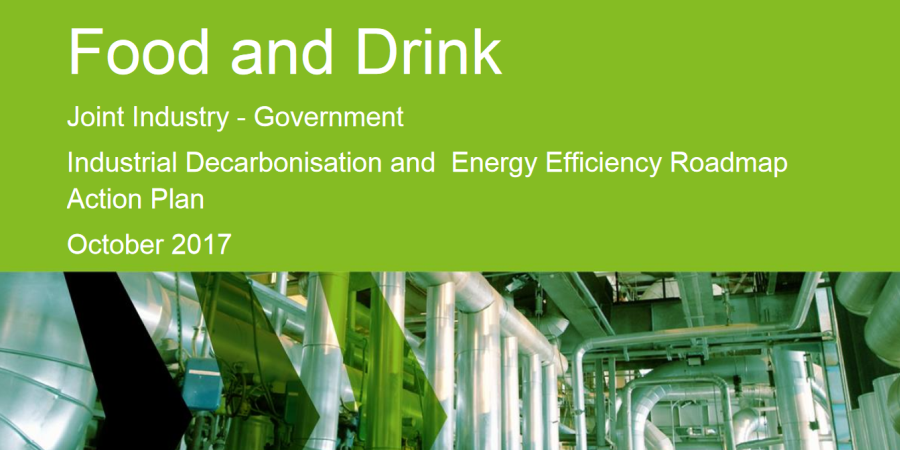The Department for Business, Energy and Industrial Strategy has revealed its Food and Drink Joint Industry – Government Industrial Decarbonisation and Energy Efficiency Roadmap Action Plan, as part of its Clean Growth Strategy.
The Action Plan is described as a milestone for the Clean Growth Strategy that will “help industry make the low carbon transition while also maintaining its competitiveness”.
The voluntary plan is expected to help support existing cross sector and company commitments and actions to address the “clear challenges of improving energy use productivity and decarbonisation”.
“At the same time, it recognises the importance of improving competitiveness, growth and productivity in, what is, the UK’s largest manufacturing sector”, the announcement said.
The Action Plan has identified a number of specific opportunities for the sector in innovation, skills, the use of technology and on ‘building in’ energy efficiency and decarbonisation at the process design stage.
“When taken forward, and backed with the appropriate resources, these actions will make a substantive contribution to emissions reductions and improve energy use productivity.”
Among the opportunities identified are the support for energy efficiency to bring the best available technologies to UK operations, providing long-term regulatory stability and delivering secure energy supplies at competitive prices.
What’s more, they include confirming that support schemes are long-term and cover all affected installations, ensuring that any regulatory targets are “realistic and achievable”, while supporting the development of markets to provide suitably skilled staff.
Finally, the plan will attempt to take the concept of a circular economy to maximise resource efficiency, while reviewing the planning system to ensure investments in efficiency can be “effectively delivered”.
Food and Drink Federation’s reaction
The Food and Drink Federation (FDF) has welcomed the Action Plan, as it has pledged to “actively collaborate with Government in order to reduce carbon emissions to contribute to the UK’s challenging 2050 decarbonisation targets”.
According to FDF, the publication of the plan is an “important milestone” in helping the federation and its members achieve the target of a 55% reduction in emissions by 2025, as set out in FDF’s Ambition 2025, and its longer term ambition to cut them by 80% in 2050.

Ian Wright CBE.
Ian Wright CBE, director general at Food and Drink Federation said: “While this is a promising first step, in order for us to deliver our 2050 Roadmap ambitions, we must continue to work closely with Government and partners to ensure long-term policy and regulatory stability, deliver secure energy supplies at competitive prices and embrace the concept of a circular economy to maximise resource efficiency.
“We will continue to work closely with Government and other stakeholders in order to take these actions forward and to secure a sector deal for food and drink as part of the Government’s Industrial Strategy.









